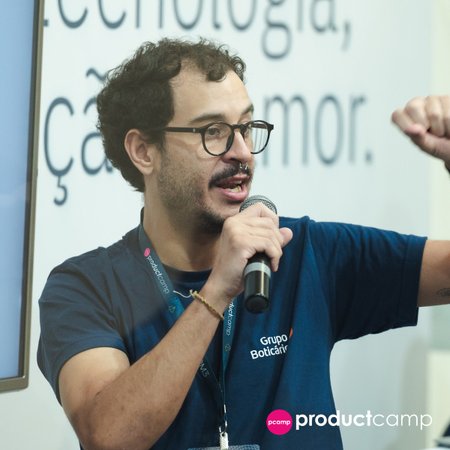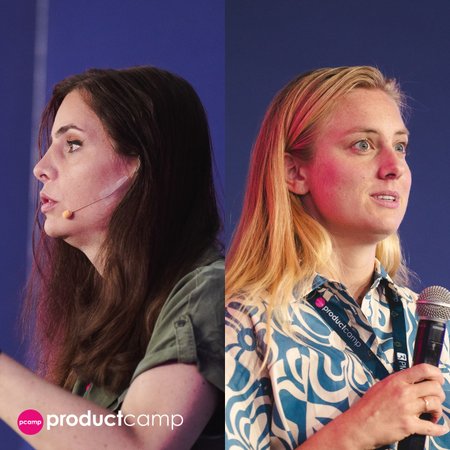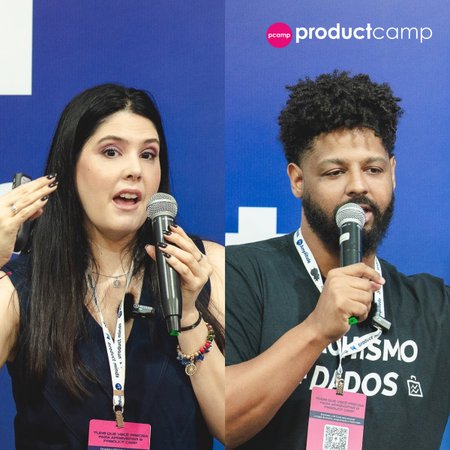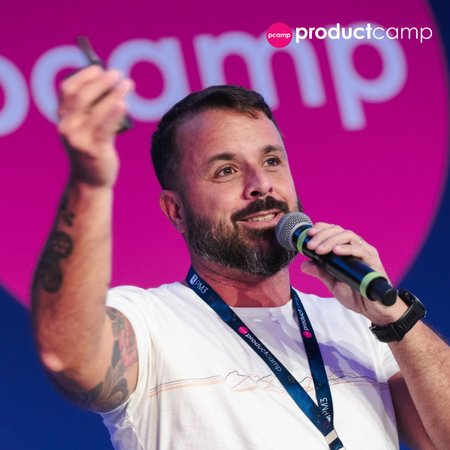PCamp23 and a look at the Product market in 2024
At the beginning of December 2023, part of the Labcodes team participated in Product Camp, known for being the largest Product Management event in Latin America. We had the opportunity to meet friends and partners from previous projects, listen to experts from different areas and exchange many insights in two days of learning and networking.
PCamp23's motto, Leaner, Better, Faster, Stronger, sums up what we heard in all conversations and lectures: the Market calls for optimization and delivery of value in the short term. Moreover, in the scenario of constant change that we live in, this can only happen if we “fail” as soon as possible, to evolve faster in search of a stronger product.
Management, Business & Innovation, Discovery & UX, Strategy & Leadership, and Marketing & Growth were some of the themes from the Product universe explored in the 34 lectures. Since talks were presented simultaneously, our team split up throughout the event in search of areas of individual interest to understand the pathways and trends we can expect in 2024. Here we list some of the topics that caught labcoders' attention.

Fernando - Offering services strategically

During the event, we had contact with partners from previous projects, such as Grupo Boticário, which was participating in the lecture panel. With that reunion amid networking moments and remembering the feedback we received when the Group was our client, the most memorable reflection was: How can we offer and perform our service in a more strategic and valuable way?
As service providers, a major barrier we encounter is the common sense’s idea that there is a conflict of interest and that an outside team will not care as much about the product as the client's internal team.
Check out our blogpost that aims to demystify some of these issues:
Is it better to create your own system or use one that already exists on the market?
Some insights we took from conversations at PCamp23 to improve our processes were:
- Change/consolidate the way we work – especially that of our developers – so as not to just deliver code, but think about the product as a whole and collaborate with Product Owners (PO) and Product Managers (PM) to deliver more value;
- [When selling our services] Reinforce that we are a company that wants to keep up with the entire operation and that it is in our interest to help the client grow and make their product successful;
- Seek and present ourselves to clients who are aligned with our purpose;
- Analyze and validate data, aiming for growth and focusing on the end consumer.
Jules - Data Collection and Growth

Despite different approaches to the subject of Product Management and related matters, the most recurrent topic – which ended up being the focus of the keynotes (opening and closing talks) – was the need to collect and analyze Product data with a focus on Growth to define the product roadmap.
The first keynote presenter was Laura Krieger, Senior PM and advocate for Mixpanel - one of the event's sponsors and one of the largest product metrics companies on the market - She demonstrated the importance of knowing how to analyze and what data should be collected, in addition to highlighting that Product Managers (PMs) must sketch collection strategies. An example: defining research queries and analyzing this data to present to the team through dashboards with results that can become Roadmap Inputs.
In the last presentation of the conference, Leah Tharin showed the importance of data for the project's growth, paying attention to the points of interaction between the user and the product. She exemplified how to discover – based on consistent data analysis – other ways to differentiate the product from the competition. In short, data-driven product development can help a lot in solving UX problems and (re)defining the user's journey.
Honorable mentions:
- Shape-Up method as a Discovery tool aligned with Kanban and a multidisciplinary PM team;
- Data Engineering and Data Science teams to help collect product data;
- Data Product Teams: deliver value in the decentralization and automation of search queries in databases
- Data Design Concept: using data for communication between teams and during product construction;
- The current socioeconomic scenario calls for a focus on efficiency combined with data analysis;
- Direct efforts on the journey with a clear and established basis for product positioning;
- Technical development of PM teams demands time but the quality return is greater: it is estimated 6 months to integrate into the rhythm of activities and around 18 months for consolidation through consistent performance;
- Importance of diversity in PM teams and underrepresentation of black and neurodiverse people.
Maryna - Changes and data-driven design

PCamp23 was composed of many simultaneous talks, but two that caught a lot of attention were from the popular "aquariums" (smaller rooms for up to 20 people) sponsored by Product Minds.
The first one, Change Management: how to survive among uncertainty and thrive in the Product area, given by Thays Bueno (Head of Products at Raizen), opened up a very stimulating conversation. She reminded us that change is the only constant in life and that we should focus on what we can control. This brought a new perspective to decisions we can make in our careers to improve as professionals.
The second was presented by Lucian Fialho, CTO of Métrica Boss. It was interesting to see how a metrics blog became a reference and today has a vast portfolio of clients and projects. Lucian talked a little about the right moments for inserting data into the process and how we should work with a focus on the business. He also gave tips for asking the right questions, looking at the user's journey, and, therefore, collecting "good" data and working more assertively.
Many questions emerge when thinking about how to insert the study of data into the client's business culture or how – together with the development team – to develop features that, already in the Design process, can promote events and parameters for the future harvesting of these metrics. Overall, in these two days of interaction, what resonated with me was: As a designer, how can I improve my data-driven work?
Zé - Investment and expectations

A very interesting talk was Do your teams pay for themselves? given by Sérgio Ciglione. An excellent reminder about the necessity of paying attention to the return on investments when we are building products. Everything has its costs and expectations, so we need to monitor – at every stage – the value we are bringing to the business, without forgetting what is expected of us. This way, we can anticipate ourselves and try to influence this return more energetically, before unexpected cuts happen.
A squad may bring in some income, but is it enough to justify the cost of maintaining this team? We cannot obsess with adding new features and not consider that the source of money (whether through financing or equity capital) could run out. We need to seek a balance between betting on the potential evolution of the product and meeting the demands of the expectations of those who invest.

--
Did you participate in PCamp23? Did we exchange ideas? Share with us what your experience was like! In 2024, we hope to meet again there and see how much our expectations align with the Product market. See you then!
